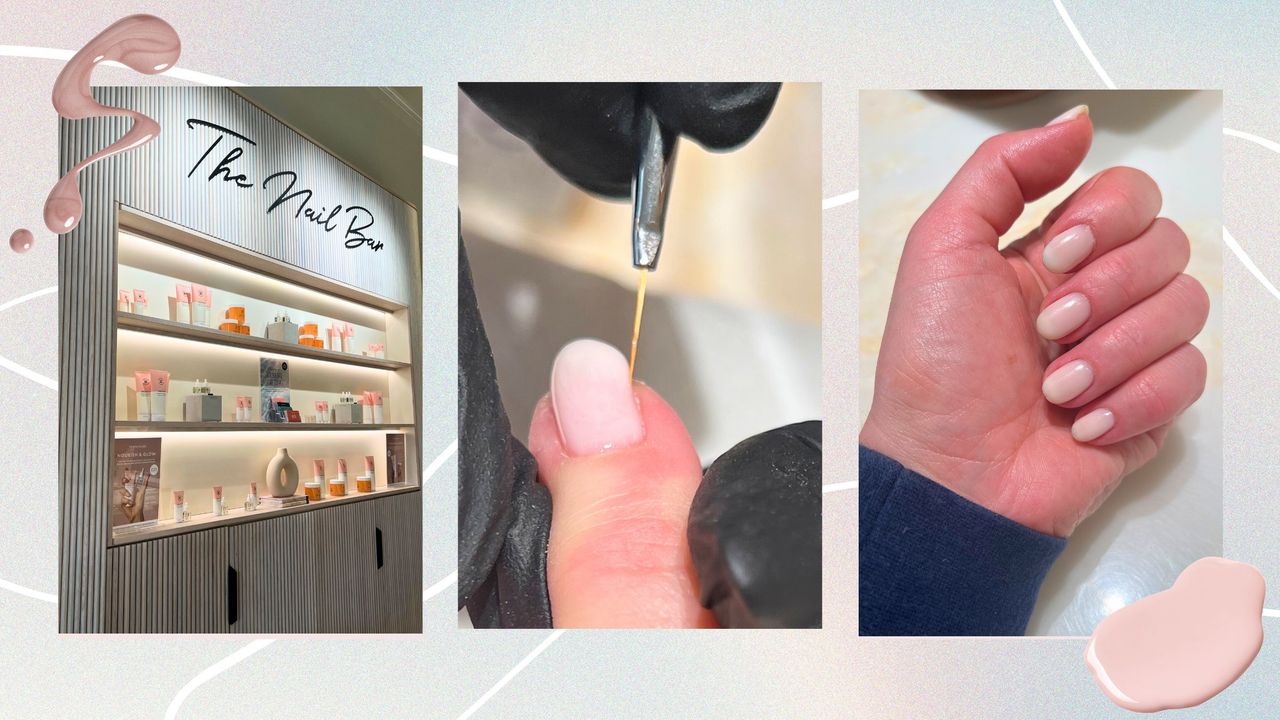
Everyone's talking about BIAB nails, which claim to be a healthier and longer-lasting alternative to gels. So, I tested this 'builder manicure' to see what it involves and whether it's right for you.
So much more than just a 2025 nail trend, BIAB is an established salon treatment that promises gel-like glossiness with extra staying power. It's also incredibly versatile, as nail techs can use BIAB for "strengthening natural nails, creating overlays, or even sculpting extensions," according to The Gel Bottle's Formulation and Scientific Director, Ifra Siddique.
It also claims to be a healthier mani, so we no longer have to choose between traditional polish, which offers superior care but can chip within days, or durable but potentially nail-knackering options like acrylic nails. If you're debating BIAB vs gels, I booked in to try BIAB and quizzed the experts on what to know before getting BIAB to bring you every detail...
I tried BIAB and quizzed nail experts for every detail - here's what I found
Firstly, what is BIAB? "BIAB is a soak-off gel that is harder than regular gel polish," explains Laurie Nicholl, from Lacquered & Stripped Salon.
The Gel Bottle nail expert, Tiffany Abbigaile elaborates, "Builder In A Bottle - aka BIAB - is ideal for creating a strengthening barrier for natural nails." This is one of BIAB's benefits, allowing you to grow long nails instead of having extensions applied.
Looks-wise, expect similarities with gels or Bio Sculpture nails; a smooth, plump nail in neutral colours. "BIAB usually comes in clear or colours like pink," says Nicholl. This is due to BIAB's thick texture, as some UV lamps can struggle to penetrate and cure the pigment on darker shades.
However, the brand has upped its shade selection to include some darker tones - and if your salon doesn't have the new colours in stock, you can layer up. "A gel nail colour can be painted directly on top of BIAB," explains Abbigaile.
My BIAB appointment, step-by-step
I booked into Townhouse Fitzrovia to find out what happens at a BIAB appointment. If you've ever had salon Shellac or know how to do gel nails at home, a BIAB appointment will feel familiar.
We began with prep, which included cuticle work, buffing, and filing the nails. My nail tech then cleaned away dust with a nail brush and a wipe of acetone.

Then the BIAB nails were applied, in 6 steps:
- Base: A thin layer of base coat was painted on and cured under a lamp.
- BIAB application: One nail at a time, a thick layer of BIAB colour was applied and worked all over the nail by fanning out the brush.
- BIAB shaping: A very fine brush was used to push the BIAB into a smooth, plump layer, before curing each nail individually under the lamp. This precision and speedy curing of each nail is essential so it doesn't set unevenly.

- 4. Filing: Once each BIAB nail had been cured, my nail tech gently filed and buffed the top of the nails to create a smooth look.
- 5. Finishing: The nail was cleaned to remove oils, and a topcoat was applied and cured. I chose clear, but you can opt for a vibrant gel.

And how long did my BIAB take to apply? Due to the individual painting, shaping and curing of each nail it takes longer than your usual gel mani. I was in the salon for an hour and 15 minutes, so I'd block out 1.5 hours to be safe.
The amount of time the appointment took is probably the only notable downside to BIAB. That aside, I'm delighted with how they look (thick, plump, and glossy) and feel (very strong.)
This feels like a more bespoke service than your average gel manicure, and you can see where the extra time and expenditure go, with the care taken during the appointment on each nail individually.
How long does BIAB last?
Up to four weeks is standard, although they can last longer. This picture is from a subsequent BIAB appointment - and a fortnight on, it was still 100% perfect, with no chipping or lifting. I opened cans of Coke worry-free and enjoyed the satisfying 'clack' of drumming them on hard surfaces to communicate impatience when the occasion called.
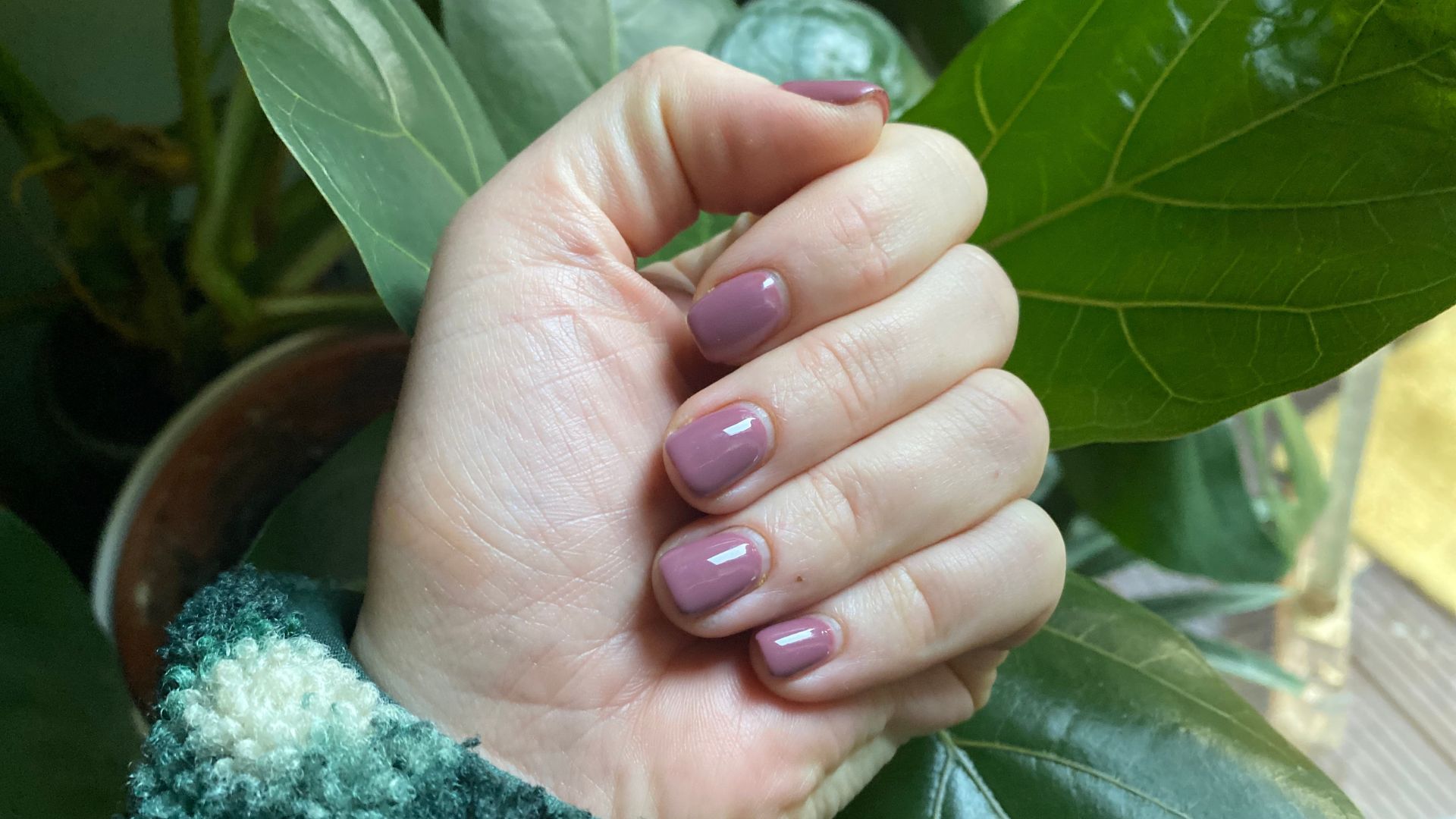
BIAB pros & cons
Pros of BIAB:
- Strengthening: This treatment reinforced my nails, allowing them to grow without the risk of breaking.
- Longevity: BIAB can last upwards of four weeks, making it a great option to avoid frequent, harsh gel removal.
- Shine: If you're weighing up BIAB vs Gels, I found BIAB offers a glossier and plumper look that keeps its shine longer than gels.
- Simple salon removal: "Unlike traditional hard gel or acrylics, BIAB can be soaked off with acetone," Ifra confirms.
Cons of BIAB:
- Limited colours: BIAB shades are mostly sheer and neutral; however, the gel bottle has upped its range, explains Ifra; "More recently, we’ve introduced darker tones, but we're best known for sheers, nudes and light pinks."
- Cost: BIAB is usually pricier than gel. Expect to pay around £10-15 over the cost of a normal gel manicure for your first set, the same again for infills and £15 for removal.
What is a BIAB infill?
If you want to make BIAB last longer, you can have an infill at the base of your nail, which tops up the colour and is a key benefit for your natural nails' health. "Since the product can be infilled, it reduces damage to the natural nail caused by removing gel polish," explains Nicholl. It's best to have BIAB infills every 3-4 weeks.
Can you get BIAB on short nails?
Luckily BIAB is adaptable for almost any nail shape and preference, and BIAB on short nails looks just as good as it does on long ones. I am a steadfast short nail wearer, and still love the glossy finish and strength of BIAB on my short nails. However, as one of the main benefits of BIAB is the ability to grow the natural nail, if you don't intend to grow them, it's worth considering whether the extra expense of BIAB is worth it.
Who is BIAB best for?
"BIAB is perfect for clients with weak natural nails who want to grow them out, or clients who want the strength of extensions without the length," explains Nicholl.
"We recommend applying BIAB on natural nails to keep the natural length. For regular gel polish wearers, we recommend switching to BIAB if you find the gel removal process has weakened the natural nail."
However, if you don't fancy spending more than an hour in the salon, or If you get impatient and want to switch up your colour more often than once a month, it might be better to have regular gels instead.
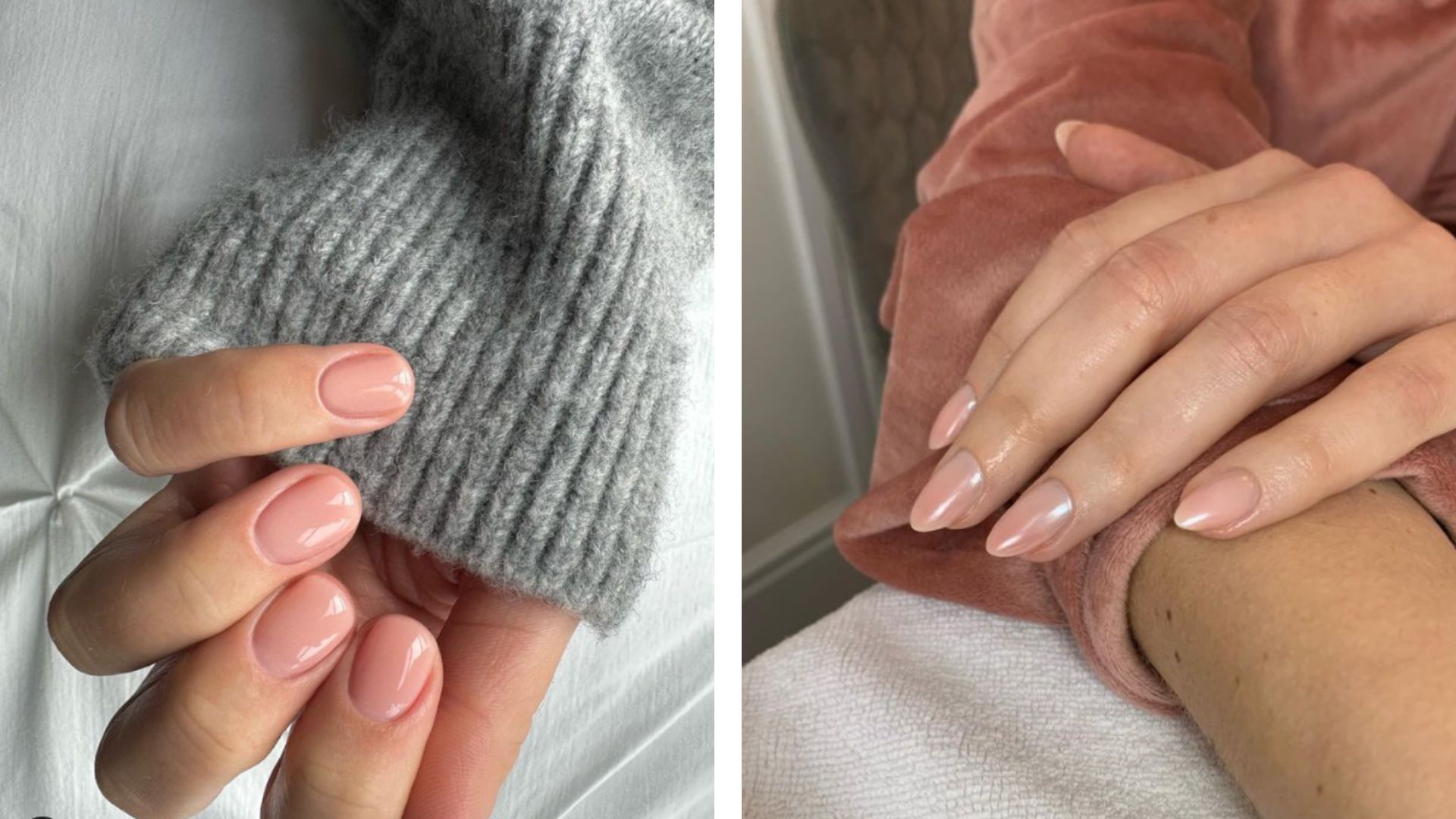
IS BIAB bad for your nails?
In short, no. BIAB works to strengthen the natural nail and prevent breakage or weakness that is typically caused by acrylic extensions or naturally brittle nails. If you are a nail-biter, it will help you to kick that habit too, as BIAB is too strong to bite through. It also won't chip or break, so the nail underneath remains protected and can grow.
Does BIAB contain TPO?
As of September 2025, the ingredient TPO has been banned from nail products in the EU, with a UK ban expected to follow suit. So you may be wondering if it's still found in BIAB products. We asked the brand and they explained, "For our EU customers, we are pleased to confirm that 100% of The GelBottle products sold in the EU are now fully TPO-free and compliant with the September 2025 regulation.
For our UK/US customers, we are actively transitioning all products to new TPO-free formulations, with reformulated versions already rolling out. We expect the entire range to be fully TPO-free ahead of the UK regulatory deadline (Sep 2026).
The GelBottle remains dedicated to customer safety, regulatory compliance, and product innovation. Our new TPO-free formulas have undergone extensive testing and are already delivering excellent results."
Can I do BIAB nails at home?
Technically, you can, but only if you're extremely skilled...and patient! BIAB functions much like regular gel polish in terms of prep and method, so is painted on as a base coat that then has to be cured with a UV lamp.
However, due to BIAB's thick and gloopy texture, it can be difficult to control and apply correctly, which is where professional skill is needed. If you want to achieve the look of BIAB but lack a nail tech diploma, you could use one of the best at-home gel nail kits to replicate the effect.
Our beauty team recommends...
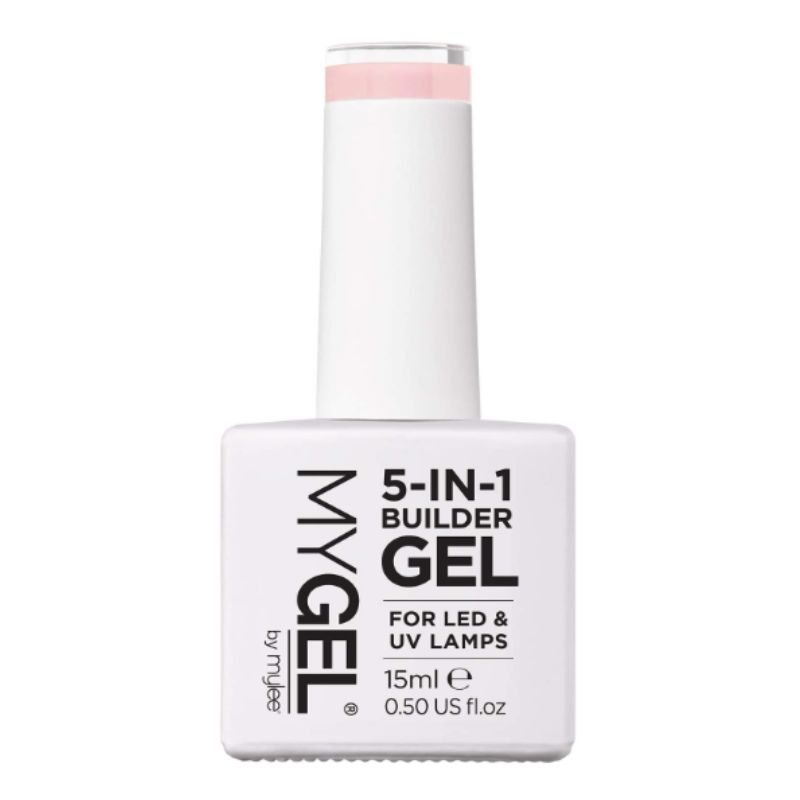
RRP: £13.50
This light pink builder gel dries glossy and will give you a BIAB-like effect in one simple step. Follow with a top coat to set and enjoy long-lasting and strong nails.
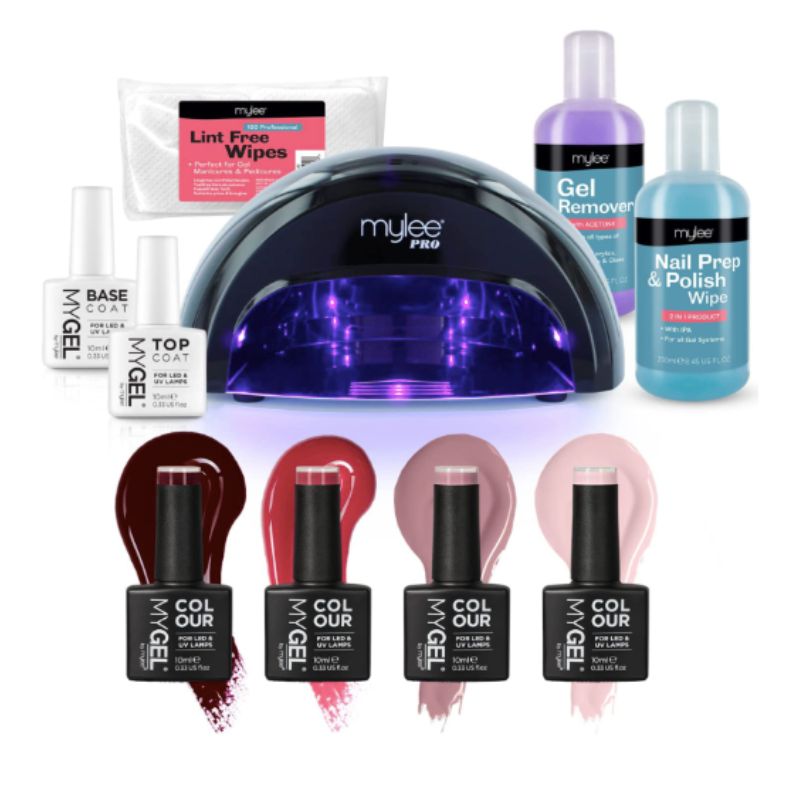
RRP: £99.99
For a hard-wearing and glossy effect that's like BIAB, try a gel polish kit. With a lamp, polishes, and remover, this has everything you need.
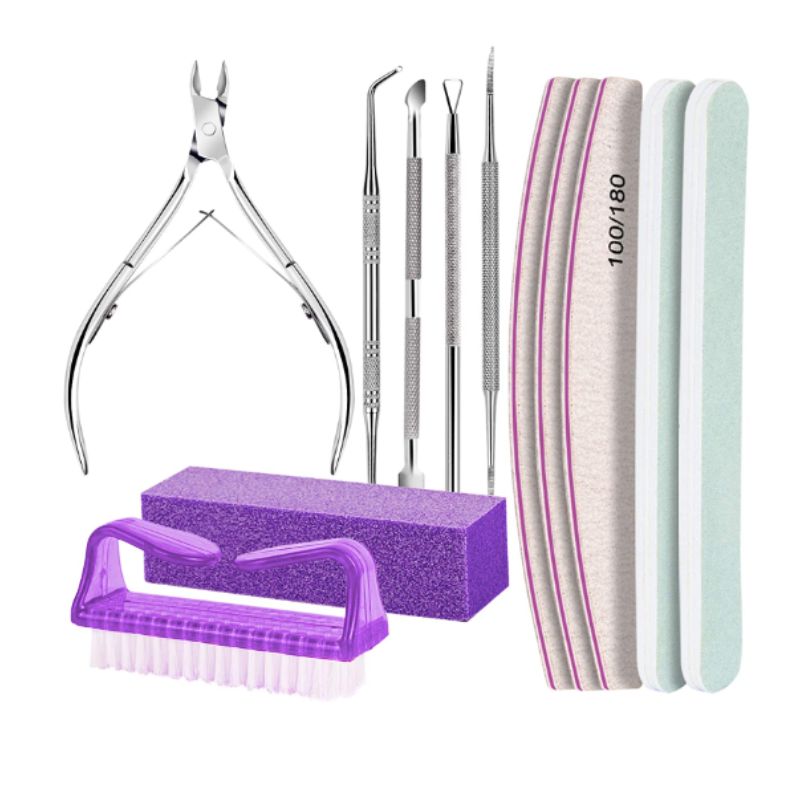
RRP: £6.99
The key to any long-lasting nail polish, especially BIAB, is good nail prep. Buff the surface and tidy your cuticles with this handy set that will help your polish last.
Should you remove BIAB at home?
To be honest, you shouldn't. Every expert we spoke to stressed the importance of professional removal.
"The bulk of the product needs to be removed first by either a nail file or an electric nail file. We will then soak a cotton pad with acetone, place it on the nail, then wrap it with foil," explains Abbigaile. "After a few minutes, the foil can be removed one nail at a time, by gently scraping away the product with a metal cuticle pusher."
This doesn't sound like it would be the healthiest move for your natural nail (ask any expert is acetone bad for your nails, and the reply is a resounding yes), but steps are taken to ameliorate damage. "Once removed, we rehydrate the nail with cream and oil," explains Abbigaile.
BIAB vs Gels: which should I pick?
woman&home Beauty Ecommerce Editor, Aleesha Badkar, swapped gel manicures for BIAB to help you compare:
"My regular gel nails would get scratches and chips, and during gel breaks, my (usually strong and fast-growing) nails would be weak and struggle to grow past the fingertip. I thought BIAB might be worth a try, as it could be added to each time, without the need for removal."
"Boy, was I right. Five months of regular BIAB manicures left me with faultless nails that boast shine, polish and a whole lot of strength. Not only did BIAB stop my nails from cracking, but my nails grew faster than they would naturally.
BIAB manicures don't require breaks thanks to the protein in the formula, but I'm now a month into a break, and my nails are making it towards a healthy length - unseen during a gel break. Call me an official BIAB convert."
BIAB vs Acrylic: which is better?
In terms of nail health, BIAB is a better alternative to acrylic as it provides increased strength without compromising the natural nail. When it comes to extensions, "BIAB can be applied on acrylic or UV Gel extensions; however, it won’t enhance the result of the extensions. With BIAB, you can do very short extensions, but they usually need to be done with tips, not sculpting," explains Nicholl.
Alternatively, if you want to work on growing your natural nails and eliminate extensions, BIAB could be the answer. If you are consistent with BIAB and get regular infills, it won't take long for your natural nails to grow long and healthy.
Our expert panel
Where to find BIAB near you
If you like the sound of BIAB and are keen to try the service for yourself, it is currently available at selected The Gel Bottle partner salons nationwide. The best way to find one is to check your local nail bar on Treatwell (UK). We also round up the latest Treatwell discount codes each month to help you find money off your next appointment.







